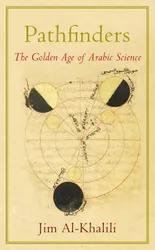This book charts the rise and decline of the golden age of Arabic science, from the 8th century to around the 16th. While Europe was in the dark ages after the decline of the Roman Empire, the Islamic world to the South and East produced many great scientists and philosophers. This book aims to reinstate these scientists to give them the credit they deserve for their contributions, their work having often been forgotten or downplayed by European scientists from the Renaissance onwards. This book makes the case that European science would not have got the start it did in the Renaissance had they not inherited so much scientific knowledge from Arabic scholars.
The author is careful to define what he means by Arabic in the book’s subtitle. Arabic was the language these scientists were working and writing in. Many of them (and the leaders who funded their work) were Muslims. There are also those of other religions working within the same scientific culture, as well as some who converted to Islam in order to further their careers. So the story this book tells is not entirely Arabic and not entirely Muslim.
The author argues that translation played a key role in the growth of Arabic science. Initially, Islamic rulers were interested in the observation of the heavens in order to have their fortunes told by astrologers, and for religious reasons such as ensuring the correct orientation of mosques in relation to Mecca. Previous scholars such as Ptolemy had written about astronomy, and produced star charts, and so these works began to be translated into Arabic. This translation process helped to produce a generation of Arabic scholars with scientific knowledge. As this process continued, further works were translated from Greek into Arabic in areas like chemistry, medicine and philosophy. In addition to the translation work, Islamic leaders began to invest in building their own observatories to produce more accurate star charts. All this kick-started the development and funding for science.
The story is told more or less chronologically, and we meet several key rulers along the way, as well as the scientists themselves. Many of these scientists I had not heard of before, or had only a dim understanding of based on the Latinised versions of their names (for example, Ibn Sīnā is better known as Avicenna in Europe). Most of the scientists described were polymaths, who had expertise in many areas of knowledge. Some of the significant scientists we meet are Ibn al-Haytham, al-Bīrūnī and al-Khwārizmī. It was al-Khwārizmī who wrote an important book on algebra, and gave his name to the concept of an algorithm.
The Greeks were wrong about a lot of things, like the geocentric model of the universe, and the Arabic scientists inherited their mistakes and misunderstandings. The era described in this book is very much a time of ignorance about the nature of our universe. The scientific method was only just starting to be developed, as an alternative to religious revelation. Arabic scientists asked a lot of the right questions and moved our understanding of the universe forwards in many ways.
Al-Khalili describes several factors that led to the decline of Arabic science. While it was not necessarily the major factor, he also discusses an increase in religious conservatism, and the state of science in Islamic countries today.
I found this book really enjoyable. I loved learning about the work of scientists that I hadn’t heard of before, and came away with a new appreciation for their achievements. The era they were working in was largely one of ignorance about the universe. They believed in a geocentric model of the universe and the four humours of the body, and didn’t know about atoms or the elements we know today. Yet many of them championed something we would recognise today as the scientific method, and allowed our knowledge to move forward. Any history of science that doesn’t include these Arabic scientists is missing a big piece of the story.
